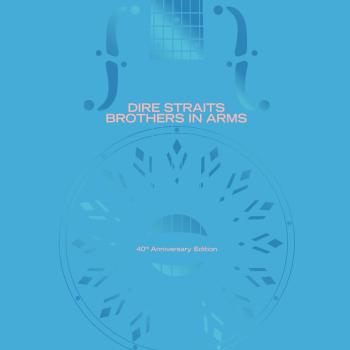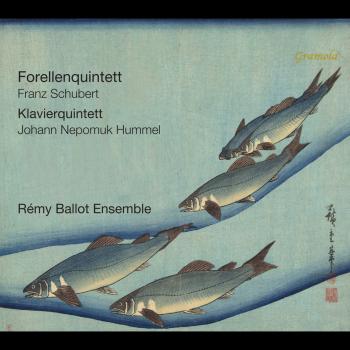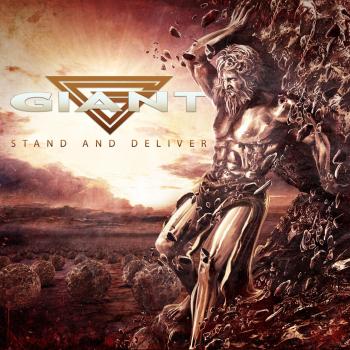
Monster (Remaster) R.E.M.
Album Info
Album Veröffentlichung:
1994
HRA-Veröffentlichung:
11.07.2012
Label: Concord Records
Genre: Rock
Subgenre: Classic Rock
Interpret: R.E.M.
Komponist: Bill Berry, Mike Mills, Michael Stipe, Peter Buck
Das Album enthält Albumcover
Entschuldigen Sie bitte!
Sehr geehrter HIGHRESAUDIO Besucher,
leider kann das Album zurzeit aufgrund von Länder- und Lizenzbeschränkungen nicht gekauft werden oder uns liegt der offizielle Veröffentlichungstermin für Ihr Land noch nicht vor. Wir aktualisieren unsere Veröffentlichungstermine ein- bis zweimal die Woche. Bitte schauen Sie ab und zu mal wieder rein.
Wir empfehlen Ihnen das Album auf Ihre Merkliste zu setzen.
Wir bedanken uns für Ihr Verständnis und Ihre Geduld.
Ihr, HIGHRESAUDIO
- 1 What's The Frequency, Kenneth? 04:00
- 2 Crush With Eyeliner 04:38
- 3 King Of Comedy 03:41
- 4 I Don't Sleep, I Dream 03:28
- 5 Star 69 03:08
- 6 Strange Currencies 03:53
- 7 Tongue 04:13
- 8 Bang And Blame 05:30
- 9 I Took Your Name 04:03
- 10 Let Me In 03:27
- 11 Circus Envy 04:15
- 12 You 04:53
Info zu Monster (Remaster)
Not so long ago, Rolling Stone's David Fricke asked the late Kurt Cobain whom he admired among 'established' rock bands. Cobain unhesitatingly named R.E.M., using the occasion to send the band members a virtual mash note for remaining true to their muse and to themselves and for refusing to be swayed by the shifting winds of fashion and commerciality.
The comment was unexpected; R.E.M.'s decade-plus track record surely justified Cobain's praise, but their musical vision and his seemed so different. Cobain wore his heart on his sleeve, wrapping his often angry ruminations in swirls of guitar feedback and distortion. R.E.M.'s music has rarely screamed to make its point and has often seemed deliberately ambiguous. The intricate clarity of their arrangements has been tasteful to a fault.
But now all this is in the past and not just because of Cobain's sad demise. It's too bad he didn't live to hear Monster. If the new album isn't exactly a sonic grungefest, it comes a hell of a lot closer than anyone could have anticipated. Imagine earlier R.E.M. favorites like 'Ignoreland' or 'Radio Song' stripped of acoustic guitars, their lapidary, almost fussily pristine arrangements reduced to slabs of electric-guitar noise and power-chord riffing, and you're only beginning to get the picture. Gone are the manicured interweavings of strings, mandolins and other acoustic instruments, gone the pinpoint definition of instrumental and vocal parts that have characterized so many of R.E.M.'s recorded performances for so long. The two or three softer tunes that might not have sounded out of place on previous outings are pointedly sandwiched in the middle of the disc, surrounded by the sizzle of overdriven amps, snarling distortion and aggressive rhythms. Michael Stipe's singing, so difficult to decipher on early records, so plainspoken and out in front of the mixes since Green, has slipped back into the sonic murk, where it fights to be heard.
Don't misunderstand: R.E.M.'s exceptional pop craftsmanship, their luminous melodic inventions, their sense of mission — in short, everything fundamental — are still there and shining more brightly than ever. What has been jettisoned, at least this time out, is all that tasteful restraint. Monster is one urgent-sounding album, and that's as it should be; what the band has to say here is urgent, politesse be damned. Monster is concerned, in song after song, with problems of identity. It explores how important having a stable sense of one's own identity can be and how up for grabs identities have become in our postmodern media hothouse, where it's possible to slip on a new persona as easily as a new look and couture can mean anything from Paris fashions to body piercing to a sex change. The concept of reality itself is being called into question: Is this my life or an incredible virtual simulation?
Clearly these issues are of more than academic interest to Stipe, who has arrived at that media plateau where his identity is in danger of becoming public property, and personal reticence inspires unfounded speculation more effectively than it preserves privacy. If Prince (who's no longer Prince) sang lines like 'I'm straight, I'm queer, I'm bi' (from Monster's 'King of Comedy') or 'Do you give good head?/Am I good in bed?/I don't know/I guess so' (from 'I Don't Sleep, I Dream'), he would probably be taken literally. Stipe could just as easily be enumerating media guesses as to his own proclivities. He sounds like a man who's delighted to be a bit of an enigma, perhaps pleasantly surprised he has any private life left. But he hasn't held on to his personal space without a struggle. Toward the end of 'King of Comedy,' he practically snarls: 'I'm not your magazine/I'm not your television/I'm not your movie screen/I'm not commodity.'
But if the most basic issues of identity are at stake, the solutions are not necessarily cut and dried. In the course of Monster's 12 songs, Stipe goes at it from a variety of angles. In the opener 'What's the Frequency, Kenneth?' he quotes director Richard Linklater's dictum 'Withdrawal in disgust is not the same as apathy' and sounds ready to withdraw himself. In 'Crush With Eyeliner' he decides to lighten up and have a little fun, adapting an oh-so-affected David Bowie/Brian Ferry croon. 'I'm the real thing,' he insists archly, aided on the choruses by the practiced anomie of guest Thurston Moore, only to wonder in the next breath, 'How can I make myself faker to make her mine?' while the band slams out a glam-rock riff the late Mick Ronson might have appreciated.
These first two songs establish a dynamic that animates Monster all the way through: learning to live in an increasingly virtual world without losing your sense of self — or your sense of humor — in the process. Occasionally, Stipe begins to sound not unlike the proverbial rock star, whining about all those fans who just won't let him alone. At least that's what I get out of 'Bang and Blame' ('You're laying blame/You know that's not my thing.... It's not my fault'). But more often, he tackles the issues with the clearheaded insight and gift for the telling phrase we've come to expect from him. Whether the songs are rocking furiously — like 'Star 69,' with its garagey, Count Five-ish flavor or the surging hijacked-identity cyberdrama 'I Took Your Name' — or shimmering gorgeously like 'Tongue' and 'Strange Currencies,' they're all involving. There isn't a throwaway in the bunch.
What's truly impressive about Monster is the way R.E.M. make an album with such potentially grave subject matter so much fun. Earlier R.E.M. albums have been impressive in other ways and not without their own humor, but this one fairly barrels along, sweeping you into its vistas with the sure-footed élan of a band very confident of its considerable powers. It also affirms in no uncertain terms that R.E.M. are a band. Monster could be guitarist Peter Buck's finest hour; he's all over this album, proving he can be just as effective without all those overdubs and acoustic fills, playing more from the gut. Mike Mills' melodic bass lines are integral to many of these songs, his piano and organ add a range of textures to the soulful 'Tongue,' and he locks in with Bill Berry's crisp, incisive drumming to make a suitably 'monster' rhythm section. If you've been a fan of R.E.M. live and missed the raw power of their gigs on earlier albums, this one's for you.
But really, it's for all of us. Neither a 'get back' garage-roots move nor a calculated attempt to win over the Lollapalooza crowd with the Big Guitar Formula, Monster is a deeply felt, thematically coherent, consistently invigorating challenge to 'evolve or die,' with all the courage of its convictions. (Robert Palmer, Rolling Stone Magazine)
Bill Berry, drums, piano, vocals
Peter Buck, guitars
Mike Mills, bass, organ, piano, vocals
Michael Stipe, lead vocals
Additional Musicians:
Bertis Downs
Jefferson Holt
Produced by Pat McCarthy & R.E.M.
Recorded at Ocean Way Recording, Los Angeles, California
Criteria Recording Studios, Miami, Florida
Crossover Soundstage, Atlanta, Georgia
Kingsway Studio, New Orleans, Louisiana
R.E.M.
Was wurde noch nicht gesagt über eine Band, die eine mittlerweile 30-jährige, geschichtenreiche Karriere hinter sich hat? Auf fast alles wurde eingegangen: Aufstieg von College-Indie-Lieblingen zu Mainstream-Superstars? Check. Ein Original-Bandmitglied, das sich entscheidet, zu gehen und einen eigenen Weg einzuschlagen? Check. Auflösungsgerüchte und dann das hart rockende Comeback? Check. Wirklich, was bleibt da noch übrig? Vielleicht etwas so Simples wie dies: R.E.M. haben ihr bestes Album seit 20 Jahren gemacht.
Das ist nicht an den Haaren herbeigezogen. 'Collapse Into Now' ist R.E.M. in Hochform, eine Sammlung von strammen Rockern, ruhigen Melancholie-Momenten und Midtempo-Schrammlern, die Bassist Mike Mills 'unsere beste Platte seit 'Out Of Time'' nennt. Anhänger des 1992er-Meisterwerks 'Automatic For The People' mögen mit so einer Aussage ihre Probleme haben, aber wisst ihr was? Ihr seid nicht in der Band.
Aufgenommen über zwölf Wochen hinweg in Studios in New Orleans, Nashville und Berlin, prescht 'Collapse Into Now' mit Peter Bucks schriller Fuzz-Gitarre ins Bild, doch dann blüht der Song auf und zeigt plötzlich Elemente – megafonartige Vocals, pulsierende Backbeats und einen angecrunchten Mittelteil –, die wirken, als wären hier die Rosinen aus allen Songs der Band-Karriere herausgepickt worden. Sofort wirkt das alles vertraut, und trotzdem frisch. Es wirkt wie eine Band, die es immer noch versteht, ihre kreativen Kräfte zu kanalisieren, dabei aber keine bewährten Muster abspult oder die Vergangenheit als Gehhilfe missbraucht.
In Jacknife Lee, der das aufbrausende 2008er-Album 'Accelerate' betreute, fanden die großen drei (Mills, Buck und Michael Stipe) einen Partner mit beruhigender Aura; der irische Produzent gab ihnen die Möglichkeit, ihre Vision zur Gänze in die Realität umzusetzen. 'Mit Accelerate verfolgten wir ein Ziel: Wir wollten alles schneller machen', sagt Mills. 'Für dieses Album wollten wir nur die besten Songs auswählen.'
Und der Trog ist tief. 'All The Best' und 'Alligator_Aviator_Autopilot_Antimatter' (Letzterer mit Backing-Vocals von Peaches und einem Gitarrensolo von Lenny Kaye) sind schieres Feuer und Raserei, 'Überlin' ist ein wunderbarer Akustik-Track, der auch gut auf 'Automatic For The People' oder 'New Adventures In Hi-Fi' aufgehoben wäre. Ein weiteres frühes Highlight ist das sich steigernde 'It Happened Today' – mit Backing-Vocals von Joel Gibb (Hidden Cameras) und dem Markenzeichen-Brummen von Eddie Vedder, der auf Tour mit Pearl Jam einen Abstecher in die berühmten Berliner Hansa-Studios machte, wo auch schon U2 und David Bowie Platten schufen. 'Das ist mein Lieblingssong des Albums', sagt Mills. 'Mir gefällt die schiere Freude und Hingabe des Sing-Alongs am Ende. Ich würde mir wünschen, dass jeder ihn so schreien möchte. Er ist erlösend.'
Für Jacknife Lee bot 'Collapse Into Now' einen erneuten Blick darauf, wie drei sehr individuelle Persönlichkeiten zusammentreffen, um eine einzelne harmonische Wesenheit zu bilden. 'Es ist selten heutzutage, aber bei ihnen gibt es keine Ego-Grabenkämpfe', sagt Lee. 'Sie gehen sehr respektvoll miteinander um. Das Schwierigste war, sie zu einer Entscheidung zu bringen, wo aufgenommen werden sollte. Ich habe mir Studios angeschaut, die über den ganzen Erdball verteilt sind.'
Orte machen einen Unterschied, und sie beeinflussen die Band. 'Tolle Restaurants sind ein Muss', gibt Mills zu. Aber auch abseits der gastronomischen Anforderungen sickerten die Umgebungen in den Sound von 'Collapse Into Now'. Das sehnsüchtige 'Oh My Heart' präsentiert die Blaskapelle Bonerama aus New Orleans, das epische, schaurige 'Blue' kam unter dem grauen Himmel Berlins zur Welt. Das elegische Lied besitzt Kayes Gitarre und Stipes Spoken-Word-Gesang, ergänzt durch einen rhythmischen Choral der langjährigen Band-Vertrauten Patti Smith.
'Es ist ein trauriges, leidvolles Lied, aber zum Ende wird es hoffnungsvoll', sagt Mills. Und wenn 'Collapse Into Now' ein Leitmotiv besitzt, dann dies: Auch wenn man durch Dunkelheit watet, findet man am Ende zum Licht. Für R.E.M. strahlt dieses kreative Leuchtfeuer mit 'Collapse Into Now' heller denn je. (Quelle: Warner Music)
Dieses Album enthält kein Booklet

























